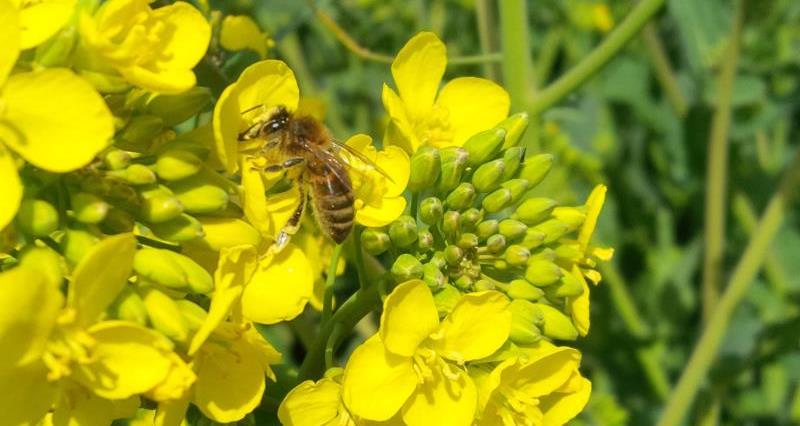As MEPs look to once more block progression of Bee Guidance Document, NFU Bees and Pollinators Adviser Dr Chris Hartfield, discusses potential implications for UK agriculture.
However in a meeting last week, MEPs once again argued that the newly approved scientific method for assessing agrichemical risk to bees – which uses a population model to determine natural variability of a bee colony – would once again not provide enough protection from pesticides for pollinators and threatened to block the upcoming proposal from member states.
The chair of the environment committee called on the Commission to take a more active political role to encourage member states to take a different approach.
Dr Chris Hartfield, NFU Bees and Pollinators Adviser reflects:
"The actions of the European Parliament are once again showing how the protection of pollinators is about politics, not science.
The situation is simple – we have the old 2013 Bee Guidance Document that Member States could not agree because it was unworkable, and it was unworkable because key parts of it had no solid scientific basis. But this 2013 document is liked by those campaigning against pesticides because virtually all pesticides would fail to pass regulatory assessments using it.
The 2013 document continues to be vociferously backed because it would be a massive backdoor way of prohibiting the use of the majority of pesticides, with no apparent concern about how food and crops would then be produced in the EU.
At the same time the backers of the 2013 document are putting their fingers in their ears and shouting loudly, so they don’t have to listen to the EU’s scientific advisory body EFSA describe how, following the Commission’s request, its experts have undertaken a long science-based review of the bee guidance, involving over 20,000 scientific papers, input from member state risk managers and other experts, and open and transparent engagement with a wide range of stakeholders (including backers of the 2013 document).
They aren’t listening because this evidence-based update to our understanding says something different to the 2013 document and they’ve successfully hooked MEPs into believing that this translates into less protection for pollinators. Whereas in reality, the one thing we can be sure of translating into less protection for pollinators is basing your regulatory approach on opinion and politics instead of science."
Read more about bees and pollinators
Find out the latest in crop protection news
